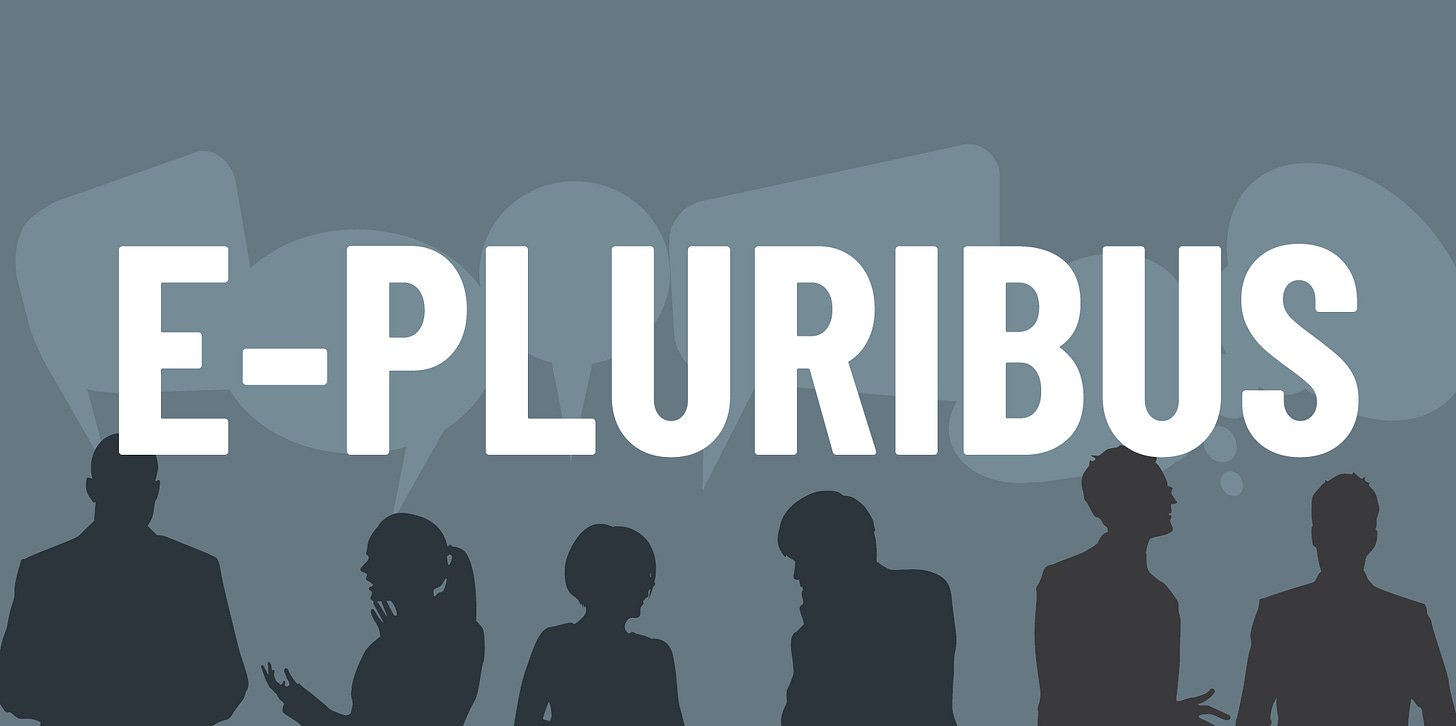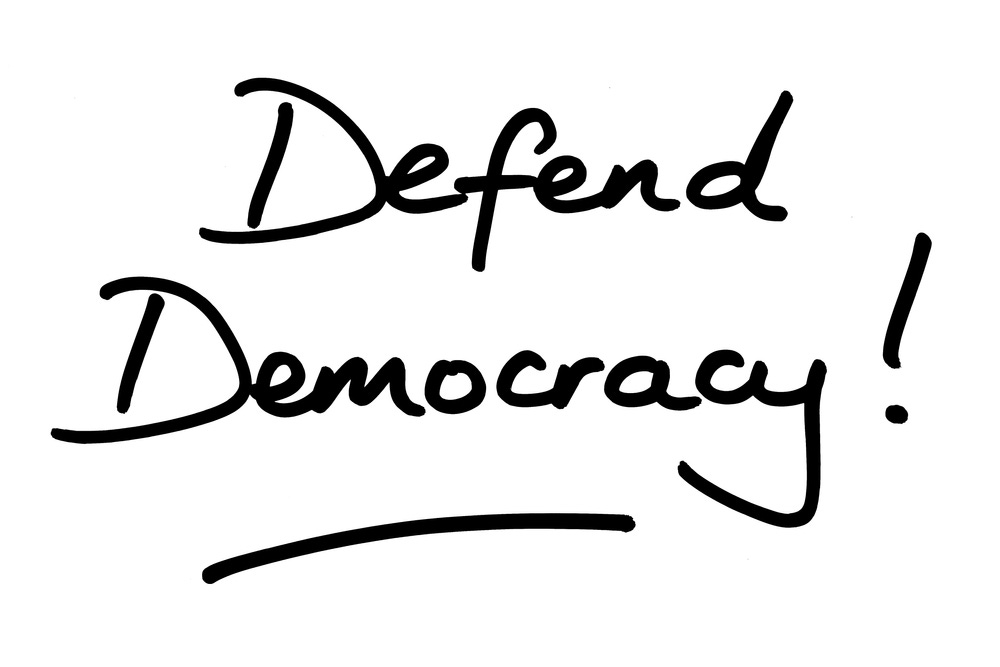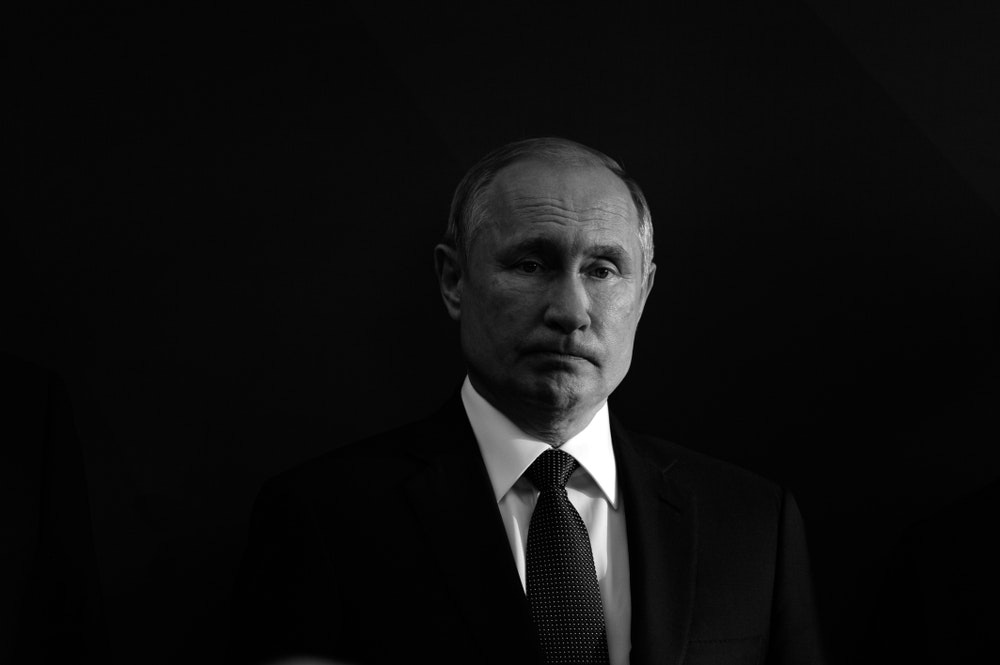E-Pluribus | March 14, 2022
Practical steps to defend democracy, when teaching about racism is called racism, and how Putin's invasion of Ukraine is impacting his strange bedfellows on the right.
A round up of the latest and best writing and musings on the rise of illiberalism in the public discourse:
Bradford Vivian: A Daily Manual for Defending Democracy
“Everybody talks about the weather, but no one does anything about it,” Mark Twain is (probably wrongly) credited with saying. Perhaps applied to democracy that’s an overstatement, but in any case, talk far outweighs action. In response, Bradford Vivian at Arc Digital has written a manual for defending democracy.
Since each of us has an interest in democracy prevailing, each of us has a role to play in defending democracy at home during this broader geopolitical contest. The way we do it is through free political activity.
Given that the U.S. has undergone democratic backsliding and rising pro-authoritarian sentiment in recent years, the need for American citizens and leaders to actively promote democracy is acute. Our recent struggles on this front have only encouraged Russian President Vladimir Putin’s dictatorial agenda. What’s more, political reactionaries in the U.S. have openly praised Putin since the mid-2010s. That praise has tragically distracted from the heroism of many brave Russians risking their lives to resist Putin’s attacks on democracy at every turn.
[ . . . ]
Reject political proposals to censor educational institutions and restrict the free press.
Putin attacks schools and universities because he claims that they promote dangerous or “unpatriotic” ideas about race, sex, gender, or multiculturalism. The Kremlin represses journalistic freedom by calling truthful reports about current events fabrications and, therefore, threats to state security. Exerting state power over educational institutions and controlling the media have been key parts of Putin’s anti-democratic agenda all along.
Resist partisan efforts to regulate education or public information in the U.S.
Hold officials accountable for protecting academic freedom and freedom of the press.
Read it all.
Margaret Peppiatt: SDSU professor who teaches about racism punished for teaching about racism
The idea that a college professor would have to teach his given subject without verbalizing key, relevant words and phrases should be unthinkable, but some at San Diego State University not only think it, but are willing to mete out consequences for such speech. Margaret Peppiatt at The College Fix tells the story of Professor J. Angelo Corlett and how he lost his position teaching a class on racism for daring to say certain words out loud.
At issue is Professor J. Angelo Corlett’s use of racial epithets to explain the difference between racial and racist language.
“On March 1 an unidentified Black student, who was not registered in Corlett’s critical thinking course, stopped by and repeatedly challenged Corlett’s mention of epithets, particularly one regarded as the most offensive slur against Black people,” the San Diego Union-Tribune reported March 6.
Corlett told The College Fix that he engaged with the visitor to explain his pedagogy, but was told later that day by administration that he was relieved of teaching duties for his “Critical Thinking and Composition” and “Philosophy, Racism and Justice” classes.
Corlett, who has earned multiple teaching awards at SDSU and has taught on racism for two decades, said there is a difference between the “use” and “mention” of racial epithets.
[ . . . ]
Corlett told The College Fix that he tried to explain the difference between mentioning and using a racial epithet to the visiting student, and other students in the class also tried to clarify the use-mention distinction, but the visitor would not let go of the issue, he said.
Making matters worse, according to Corlett, the Dean of Arts and Letters Monica Casper failed to ask him what happened in class or mention what the students complained about prior to his teaching suspension.
Read it all here.
Andrew Sullivan: Putin's Challenge To The American Right
Vladimir Putin’s reputation as an anti-woke warrior has always rung hollow, but Andrew Sullivan says that his misadventures in Ukraine have (thankfully) upended some on the right who went out of their way to make excuses for him and his authoritarian behavior.
Even those on the far right who had long had to acknowledge that, yes, well, Putin was a bit of a sociopath, nonetheless professed to admire his skill, if not his motives. Nigel Farage, the well-nicotined Brexit pioneer, called Putin one of the world leaders he most admired, hurriedly hedging with “as an operator, particularly the way he managed to stop the West from getting militarily involved in Syria.” He later reiterated: “He’s a very canny, very sharp, very clever political operator.” Eric Zemmour, the dynamic far-right leader in France, also spoke highly of Putin, calling him “the last bastion against the hurricane of the politically correct which, starting in America, has destroyed all the traditional structures of family, religion and nation.” He later added, “I dream of a French Putin emerging, but there is none.”
[ . . . ]
Steve Bannon summed it up: “Putin ain’t woke. He’s anti-woke.” Congressman Madison Cawthorn took it further: “Remember that the Ukrainian government is incredibly corrupt, and it is incredibly evil, and it has been pushing woke ideologies.” That plucky little Zelensky, speaking live to the British House of Commons as bombs rained down on his country’s cities? An “incredibly evil” “thug.” Our old friend Dinesh D’Souza, in his usual temperate style, sees the Democrats as posing “a far greater threat to our freedom and safety than Putin.” And Bannon is still urging his minions to give “zero dollars to Ukraine,” even as the corpses of children lie on the streets. There’s an alt-right edginess to this moral perversity.
[ . . . ]
I think that’s true of reactionary currents at home too. There’s something both horrifying and yet also powerless about them. Trump’s constant invocation of “strength” is an obvious way to bluster past his palpable weaknesses. He barely won in 2016 against an uncommonly awful candidate; and four years later, lost re-election to a foggy retiree in a Delaware basement. He built no wall. He deported fewer people than Obama did. He passed no infrastructure bill. He presided over a murder wave in the cities. He lost white male voters to Biden. He sent the far left into overdrive. In the end, Trump was reduced to egging on a crew of malcontents, loonies, and thugs to attack the Capitol building to reverse an election result they couldn’t reverse, and didn’t. Yes, it was a horrifying, violent, and shameful insurrection. But it was also, in a word, pathetic.
And this is often the risk of reactionary movements. The backlash they provoke can be lethal to their cause. Think of the convoy-truckers in Canada, understandably miffed by their government’s overbearing Covid policies. What they actually provoked in the end was an invocation of the Emergencies Act that claimed the power to freeze the bank accounts of those who contributed money to the convoy cause. That’s a precedent the woke-authoritarians to our north are celebrating — but which are terrifying for the future of Canadian democracy. And what Putin has provoked by his needless invasion is a similar dynamic. If Trudeau tried to freeze the bank accounts of political opponents, the West has chosen to cut an entire country off from global finance — to precipitate its collapse. The scale of this organized global cabal and the immensity of its power should alarm anyone. Putin’s hyper-nationalism has actually generated the most potent globalist power grab since the Cold War. And made it look reasonable.
Read the whole thing.
Introducing: Legends of Dissent
This week, we are introducing a new recurring feature, Legends of Dissent: Snapshots of history's greatest free speech champions. With this series of graphic vignettes, we will tell lesser known but important stories of American heroes who risked much to advance the cause of justice and freedom even when it meant (which it often did) going against the grain. We begin with Frederick Douglass at the Tremont, Part 1, an incident from the life of that giant of the abolitionist cause and champion of free speech. Please let us know what you think.
Around Twitter
Via Heterodox Academy and Persuasion, some thoughts from Zaid Jilani on academic freedom:
Via Katie Herzog at Reason, a story that demonstrates how accusations alone aren’t enough (click for the whole thread.)
And finally, Critical Race Theory proponents: If you’ve lost Beto O’Rourke…











